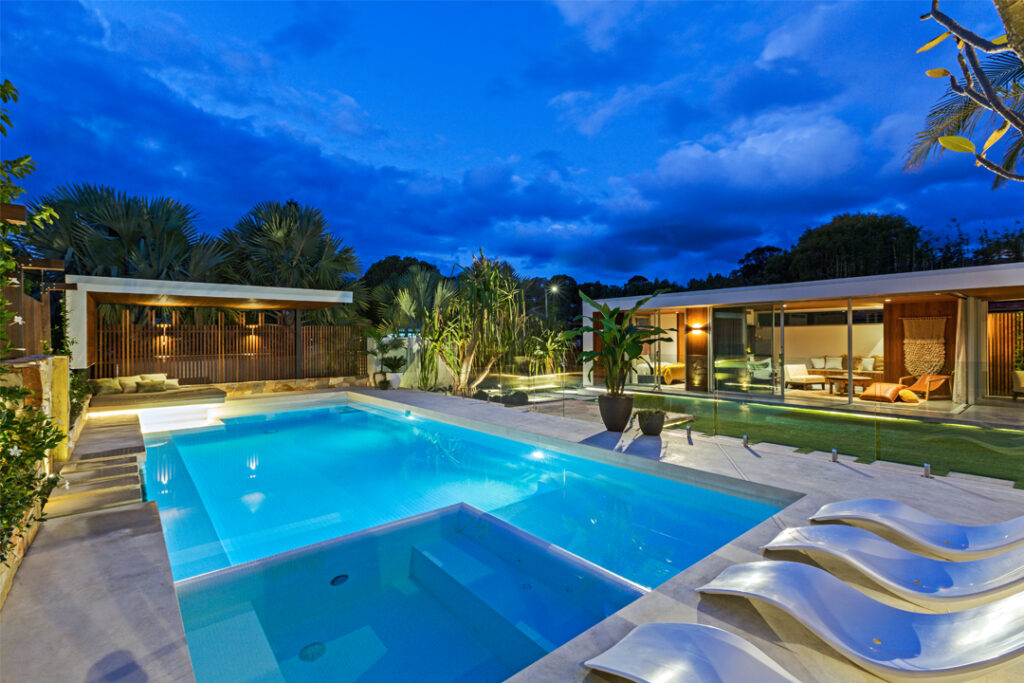Concrete OR Fiberglass pools The REAL Truth
We are not pushing any construction style of pool (As we don’t sell them) but we see many, many pools over the years and note there are important features of both. Most of the pools we see have an issue and its usually to do with the original installed surface. So, if you want an unbiased opinion, read on. It could save you a lot of money and increase your pool enjoyment beyond belief.
The first notable difference is the type or surface.
Fiberglass (and for that matter epoxy painted and vinyl liner pools) have an unreactive surface. Meaning they really do not react with the pool water or the chemicals with in.
On the other hand, plaster type surfaces, (anyone of them that’s has cement as part of its composition) is reactive. This indicates that the chemicals, react with the cement, and so becomes an issue to manage throughout the life of the pool.
So, what can you expect during the life of your pool?
Those non-reactive surfaces: Fibreglass, paint, tiles do not react during the life of the pool. So, they tend to remain less effected, and algae growth is limited to not at all. Fiberglass is generally a great surface, though slowly chalks, but is long lasting, non the less. Sure, some paints will chalk due to UV light effects and slowly wear away, like epoxies. And Acrylic paints will have a shorter life, overall. Fluoropolymer coatings are non-reactive and not effected by UV light, so will be longest lasting. Tiles withstand pool conditions very well, but the grout much less so and will allow algae to take root.
Those reactive surfaces: Plaster surface like Pebble Tec, Marcite and Quartzon varieties with cement binder, do slowly erode. The cement matrix is eaten away, and the surface becomes rougher and provides micro crevices that allow algae to take root. So over time maintenance costs increase, to keep the surface clean, deal with stains and then resurface as the surface become too rough, for comfortable bathing.
Structural integrity: It is well known that a properly engineered, and installed concrete pool has a great deal of resistance to ground movement, high water table and similar concerns. The important points being installed as designed, with no contractor short cuts. Also, flexibility in design allows a personalized approach. Then comes the finish that will offer the best looking and least costly (install and over the lifetime) surface.
Fiberglass pools’ structural integrity is much less than for concrete, so in high water table or unstable soils, they are not generally recommended. But careful installation is needed to ensure long term pool stability, in the right situations. They come in many shapes and sizes though the are limited by transport issues and ability to be placed correctly. Also, the quality of the construction is important to ensure durability.
Structural integrity: It is well known that a properly engineered, and installed concrete pool has a great deal of resistance to ground movement, high water table and similar concerns. The important points being installed as designed, with no contractor short cuts. Also, flexibility in design allows a personalized approach. Then comes the finish that will offer the best looking and least costly (install and over the lifetime) surface. Fiberglass pools’ structural integrity is much less than for concrete, so in high water table or unstable soils, they are not generally recommended. But careful installation is needed to ensure long term pool stability, in the right situations. They come in many shapes and sizes though the are limited by transport issues and ability to be placed correctly. Also, the quality of the construction is important to ensure durability.
Summary: If you are about to embark on a new pool look at the conditions in you location to select which type is best from a structural point of view. And of course, consider the usage now and into the future along with aesthetics. Then look at the surface type that will give you the least maintenance issues, throughout the pools life and maximise the swimmability of it. A non-reactive surface will do this, and fluoropolymer coating offers this prospect, if having a concrete pool. For less demanding site situations a fibreglass or liner pools offer great advantages economically in the short and long term.
For existing pools be they concrete or fiberglass, then at the time of resurfacing – upgrading, look get or maintain a non-reactive surface. A fluoropolymer coating offers this prospect for both surfaces, but not liner pools.

